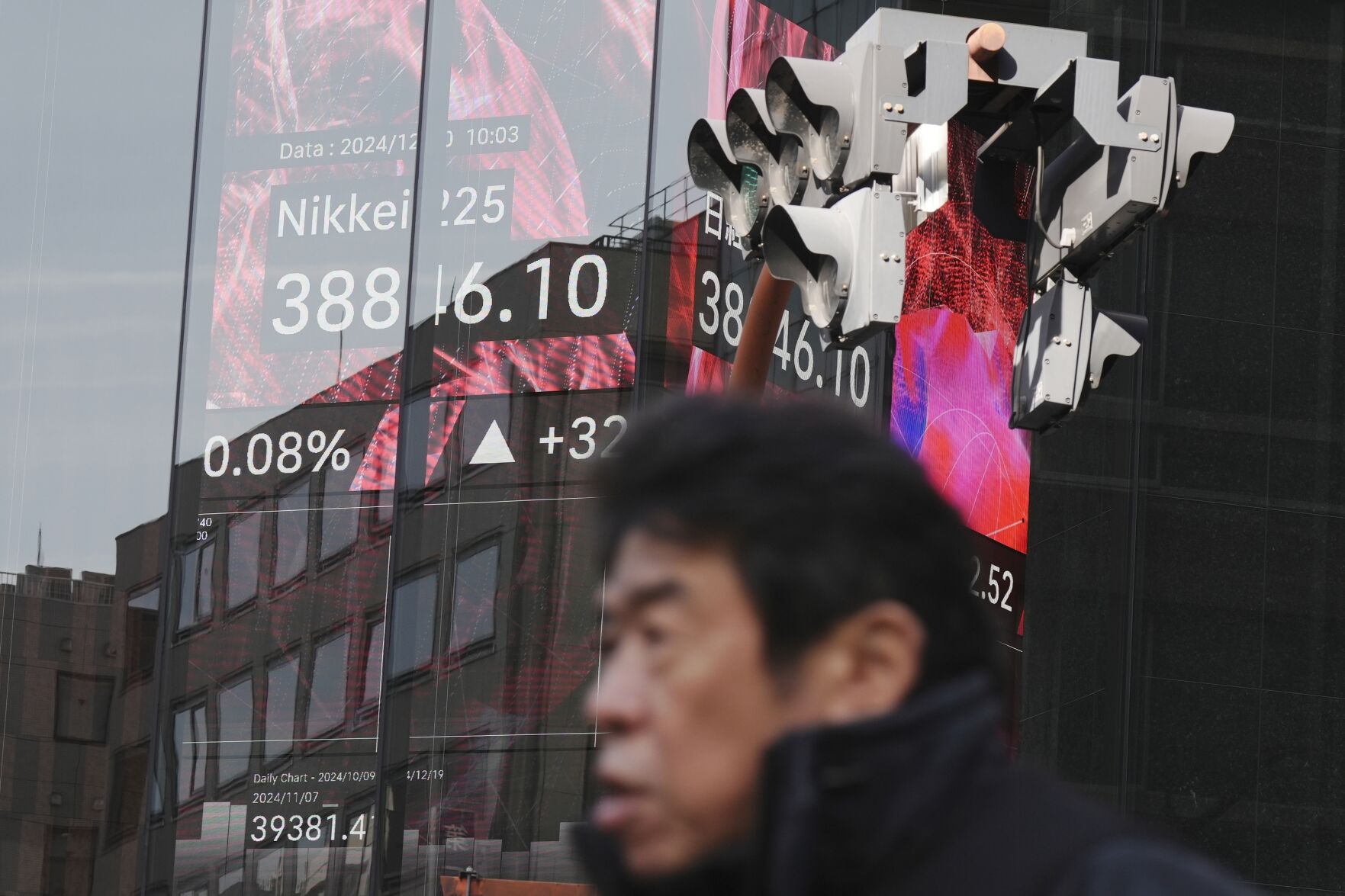U.S. stocks continued their downward spiral on Friday, deepening an already dismal week. The failure of lawmakers to pass President-elect Donald Trump’s funding plan has raised the specter of a government shutdown right before Christmas, rattling investor confidence and sending markets into a tailspin.
Stock market today: Wall Street falls to worsen its already dismal week

Key Takeaways:
-
U.S. Stocks Continue to Decline
Major indices fell, worsening an already bad week for the market. -
Government Shutdown Risk Increases
Lawmakers failed to pass funding, raising the possibility of a shutdown before Christmas. -
Corporate Earnings Impact Markets
Nike’s lowered guidance and U.S. Steel’s negative projections dragged down stocks, while FedEx’s positive news provided a slight boost. -
Political Turmoil Affects Investor Confidence
The rejection of Trump’s funding plan has created uncertainty in the markets. -
International Markets React to Economic Indicators
Japan’s higher-than-expected inflation and unchanged loan rates in China influenced global markets.
U.S. stocks are extending their losses, capping what has become one of the worst weeks of the year for Wall Street. The S&P 500 fell 0.4% on Friday, intensifying concerns among investors about the health of the economy and the political climate.
Market Indices Plunge
The Dow Jones Industrial Average dropped 61 points, or 0.1%, while the Nasdaq composite fell 0.9%. These declines reflect growing unease as the Federal Reserve warns it may implement fewer interest rate cuts next year than previously anticipated.
Corporate Earnings Weigh on Stocks
Nike contributed significantly to the market’s downward trajectory. The sportswear giant’s shares fell 4.2% after it issued lowered guidance for the current quarter, prompting worries about consumer spending and corporate profitability. Conversely, FedEx provided a rare bright spot; its shares jumped 9% following a positive second-quarter profit report and the announcement of plans to spin off its freight division into a separate public company. U.S. Steel also impacted the market negatively, sliding 7% after preannouncing disappointing fourth-quarter results.
Government Shutdown Looms
Adding to the market’s woes, the possibility of a government shutdown looms large. Lawmakers in the House resoundingly rejected President-elect Donald Trump’s new plan to fund operations and suspend the debt ceiling. The failure to reach the required two-thirds threshold before Friday’s midnight deadline has heightened fears of a shutdown just before the Christmas holiday.
Political Turmoil and Market Uncertainty
House Speaker Mike Johnson expressed determination to regroup and devise an alternative solution to avert the shutdown. “We are committed to finding a path forward,” Johnson stated, emphasizing the urgency of the situation. The setback is significant for Trump and his billionaire ally, Elon Musk, both of whom advocated strongly against the bipartisan compromise previously reached by Republicans and Democrats.
Historical Parallels
This impasse echoes the turbulence of Trump’s first term, during which he led Republicans into the longest government shutdown in history over the 2018 Christmas season. The current deadlock serves as a stark reminder of the potential for political disagreements to disrupt economic stability.
Analysts Predict Challenges Ahead
“Next year will be a time of huge challenges to the world economy,” wrote Carl B. Weinberg of High Frequency Economics. He cited U.S. political uncertainty, expected global trade wars, and geopolitical tensions as key factors that could hinder economic growth. “We do not look forward to these changes,” Weinberg added, encapsulating the cautious sentiment prevalent among investors.
Global Markets React
European markets mirrored the unease felt on Wall Street. Britain’s FTSE 100 lost 0.9%, the CAC 40 in Paris fell 1.2%, and Germany’s DAX was down 1.5% by midday trading. Investors across the continent are bracing for potential ripple effects from the U.S. political stalemate.
Asian Markets and Economic Indicators
In Asia, Tokyo’s Nikkei 225 index dropped 0.3% to 38,701.90 following the release of November inflation data. Japan’s core inflation rate, excluding fresh food prices, rose 2.7% year-on-year, surpassing expectations and putting pressure on the Bank of Japan. The central bank decided to keep its benchmark rate at 0.25%, a move that pushed the dollar higher against the yen. The dollar was trading at 156.70 yen on Friday, down from 157.43 yen but still significantly higher than the average of 150 yen earlier in the month.
Meanwhile, the Hang Seng in Hong Kong added 0.2% to 19,720.70, and the Shanghai Composite index edged 0.1% lower to 3,368.07 after China’s central bank kept its loan prime rates unchanged. The one-year lending rate remained at 3.1%, and the five-year rate stayed at 3.6%, aligning with analyst expectations.
Oil and Currency Movements
In commodities, U.S. benchmark crude oil slipped 45 cents to $68.93 per barrel in electronic trading on the New York Mercantile Exchange. Brent crude, the international standard, fell 41 cents to $72.47 per barrel. The euro saw a slight increase, rising to $1.0401 from $1.0367, reflecting subtle currency market shifts amid broader economic concerns.
Awaiting Economic Data
Investors are also awaiting the release of U.S. personal spending data for November, due later in the day. This data could provide further insights into consumer behavior and economic momentum heading into the new year.
Conclusion
As the threat of a government shutdown looms and corporate earnings send mixed signals, both domestic and international markets are reacting with caution. The interplay of political decisions and economic indicators continues to shape investor confidence, setting the stage for a potentially turbulent close to the year.











